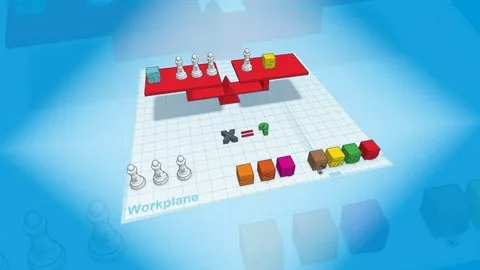
Electronics equipment integration and Prototype building 
This 8-week course is designed to help you learn the fundamentals of electronics equipment integration and prototype building. You will learn about product concepts and prototyping, solid modelling and 3D printing, detailing and design for 3D printing, components and hardware integration, fabrication and fastenings, creative design of products, assembly, integration and finishing techniques. This course is perfect for anyone looking to gain a comprehensive understanding of electronics equipment integration and prototype building. ▼
ADVERTISEMENT
Course Feature
![]() Cost:
Cost:
Free
![]() Provider:
Provider:
Swayam
![]() Certificate:
Certificate:
No Information
![]() Language:
Language:
English
![]() Start Date:
Start Date:
Self Paced
Course Overview
❗The content presented here is sourced directly from Swayam platform. For comprehensive course details, including enrollment information, simply click on the 'Go to class' link on our website.
Updated in [August 31st, 2023]
Skills and Knowledge:
By the end of this course, you will have acquired the following skills and knowledge:
- Knowledge of product concepts and prototyping
- Ability to create solid models and 3D printing
- Understanding of detailing and design for 3D printing
- Proficiency in components and hardware integration
- Expertise in fabrication and fastenings
- Creative design of products
- Assembly, integration and finishing techniques
Professional Growth:
This course, "Electronics equipment integration and Prototype building," contributes to professional growth in several ways:
1. Enhanced knowledge and skills: The course covers various topics related to product concepts, prototyping, solid modeling, 3D printing, detailing, design, components integration, fabrication, and finishing techniques. By completing this course, professionals can gain a comprehensive understanding of these areas and develop practical skills that are highly valuable in the electronics and prototyping industry.
2. Improved problem-solving abilities: Throughout the course, participants will be exposed to real-world challenges and projects. They will learn how to analyze problems, identify solutions, and implement them effectively. This problem-solving mindset is crucial for professional growth as it enables individuals to tackle complex issues and find innovative solutions in their careers.
3. Hands-on experience: The course emphasizes practical learning through activities such as prototyping, 3D printing, fabrication, and assembly. By engaging in these hands-on experiences, professionals can develop a deeper understanding of the concepts and techniques involved in electronics equipment integration and prototype building. This practical experience can significantly enhance their professional growth and make them more competent in their field.
4. Networking opportunities: The course provides a platform for professionals to connect and collaborate with like-minded individuals in the electronics and prototyping industry. Networking with peers and instructors can lead to valuable connections, partnerships, and career opportunities. Building a strong professional network is essential for long-term growth and success in any field.
5. Career advancement: By acquiring the knowledge, skills, and practical experience offered in this course, professionals can enhance their career prospects. They can pursue roles such as electronics engineer, product designer, prototype builder, or project manager in various industries. The course equips individuals with the necessary tools to excel in their current roles or explore new career opportunities.
Overall, this course contributes to professional growth by providing a comprehensive understanding of electronics equipment integration and prototype building, enhancing problem-solving abilities, offering hands-on experience, facilitating networking opportunities, and opening doors to career advancement.
Further Education:
This course titled "Electronics equipment integration and Prototype building" seems suitable for preparing for further education. The course covers various topics related to product concepts, prototyping, solid modeling, 3D printing, detailing, design, components and hardware integration, fabrication, creative design, assembly, integration, and finishing techniques. These topics are relevant and important for further education in the field of electronics and prototype building.
Course Provider

Provider Swayam's Stats at AZClass
Discussion and Reviews
0.0 (Based on 0 reviews)
Explore Similar Online Courses

Algebra

React Basics

Python for Informatics: Exploring Information

Social Network Analysis

Introduction to Systematic Review and Meta-Analysis

The Analytics Edge

DCO042 - Python For Informatics

Causal Diagrams: Draw Your Assumptions Before Your Conclusions

Whole genome sequencing of bacterial genomes - tools and applications

Rapid Prototyping for Entrepreneurs Build a Demo in 2 hours

Mobile Rapid Prototyping: Build a demo in 1 hour


Start your review of Electronics equipment integration and Prototype building